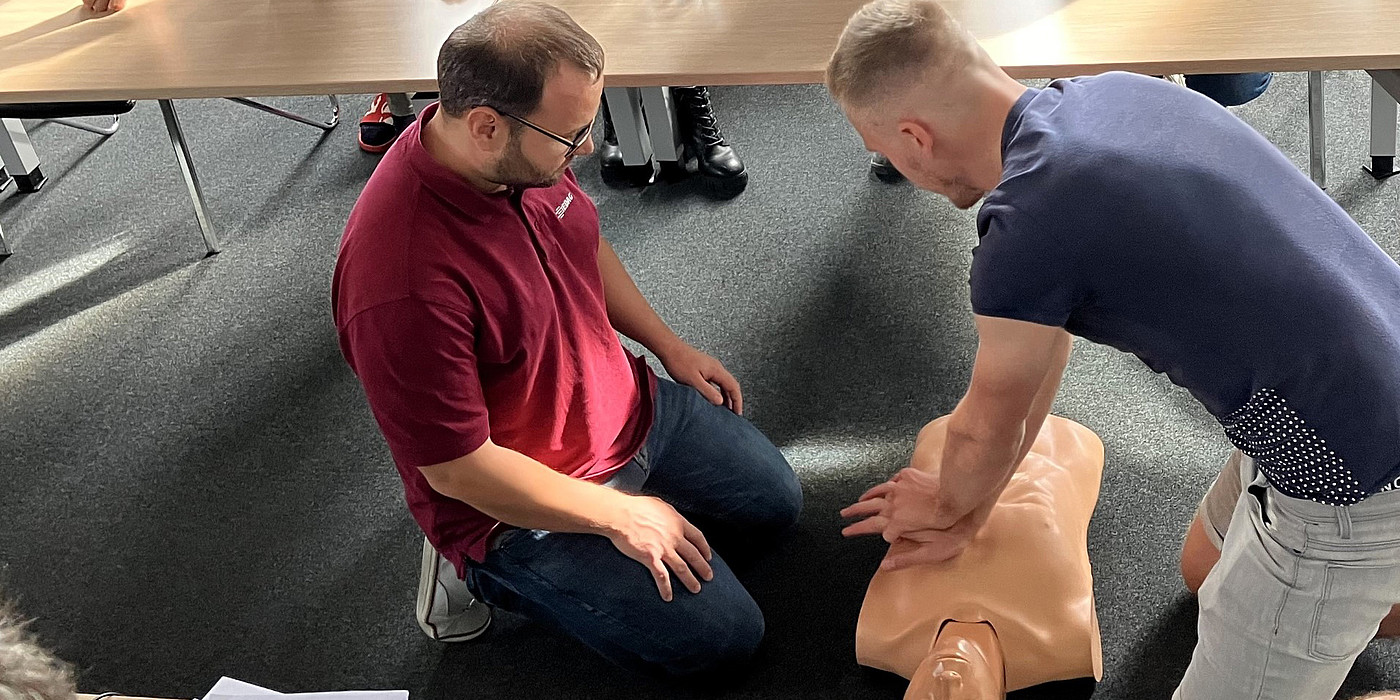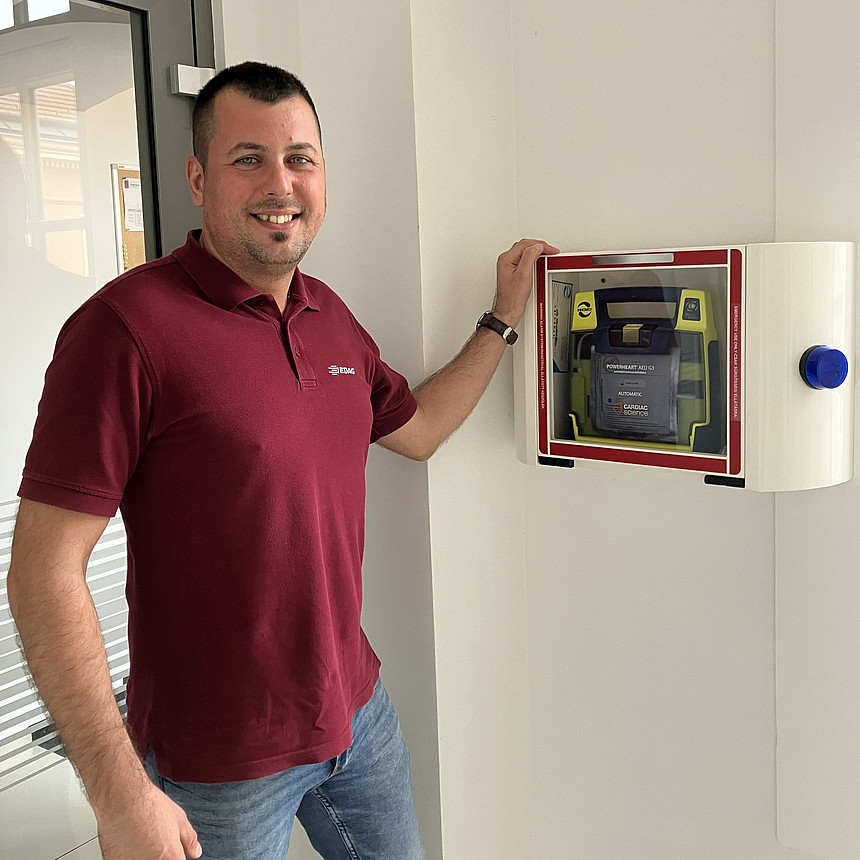How can I help my colleagues if they get injured at work or suddenly fall ill? This question was answered for 12 participants in a six-hour first aid training course given by an experienced paramedic for EDAG's volunteer first aiders in Győr and Budapest. Part of the training was also an introduction to the defibrillator, which has recently been installed at the Győr site and can save lives in the event of a cardiac arrest.
Zsolt Czupi from EDAG Production Solutions was also among the participants. He is a brand new first aider at EDAG. "We had two volunteers in our department. But one of them has left the company and the other works from home every now and then. I decided to become a first aider so I could help properly in an emergency," he explains his motivation for participating. "We discussed and trained on many practical examples during the course. This took away my fear of helping. I now know what to do in an emergency and how to bridge the time until the ambulance arrives. I would be delighted if more people had this knowledge and would help in an emergency."
The course was led by Bence Takács, who has been working in the emergency medical services for almost a decade. His most important advice: "The worst thing you can do is not to help." Experience shows that first aiders very rarely cause damage; in the vast majority of cases, helping - even if you are not a professional - is the better option.



